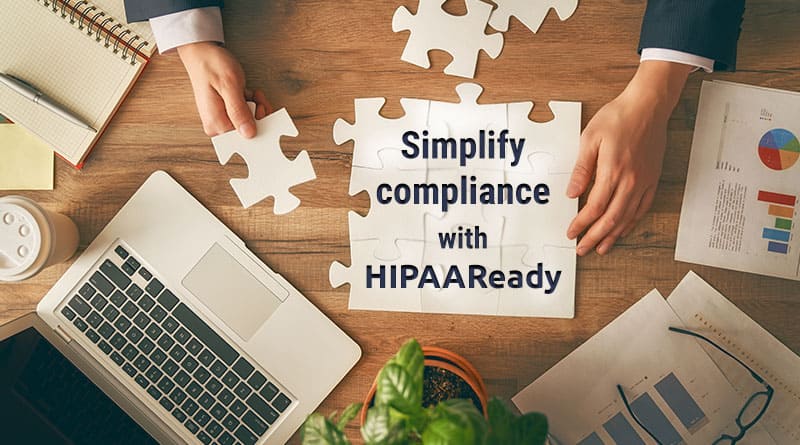Table of Contents
The U.S. healthcare system and technology go hand in hand now. Almost everything is digitalized and technology helps to improve patient outcomes. Patient engagement apps, telehealth, EHR systems – healthcare is surrounded by technology saving and improving lives and creating a win-win situation for everyone involved. Since healthcare organizations deal with lots of sensitive information, they need to maintain regulations, for instance, they need to ensure HIPAA compliance, and that is what this article is about.
Something to be concerned about
However, with great power, comes great responsibility. This famous quote is quite true for the healthcare system as well. While treating patients, healthcare providers collect patient data that needs to be kept safeguarded. They are required to store sensitive data such as Social Security numbers, DOB, and so on, which can be used to identify the patients. This information can be very dangerous in the wrong hands, and healthcare providers need to protect it. Ensuring patient data safety is of utmost importance, as data breaches are a regular occurrence in the U.S.
Healthcare organizations need to protect patient data
HIPAA is the Health Insurance Portability and Accountability Act and was established to ensure that certain patient data, termed protected health information (PHI), stays safeguarded while being stored, maintained, or transmitted by healthcare organizations. HIPAA compliance is a continuous and complex process and it is extremely important to ensure that PHI is being safeguarded responsibly at all times.
Why HIPAA compliance is important
While HIPAA compliance can be quite cumbersome, it can be extremely rewarding too as it can save you from penalties, ensures that you are following the rules and regulations properly, and keeps you in the good books of the Office for Civil Rights for ensuring compliance – increasing your goodwill.
Five strategies to ensure HIPAA compliance
Apply Administrative safeguards
The first and most important thing to do while guarding patient data is to classify what data is PHI and what data is PII (personally identifiable information). By identifying the differences and putting the data under appropriate safeguards assigned for this data, you will ensure that the data receives the standardized protection they deserve. Organizations should also apply real-time monitoring and check frequently to ensure patient data is not being misused or being illegally accessed.
Implement technical safeguards
Next comes the implementation of technical safeguards. Most healthcare providers use electronic health records now as these are faster to find, easier to store, and can be maintained quite easily resulting in improved efficiency. However, the issue lies with access to patient records and the potential misuse of PHI and PII. As this classified as sensitive data, access should be granted to limited people, reducing chances of misuse, unintended or otherwise.
Enforce security standards
Enforcing security standards is a critical component of ensuring HIPAA compliance. Healthcare organizations can enforce it by automating data security, such as using safeguards that monitor and notify changes in activities like web access, network, application usage, and data transfers.
Provide training
One of the most important strategies you need to follow is to provide continuous training to employees. An employer needs to ensure that employees know the requirements of the HIPAA regulations and ongoing training is the most effective way to convey the information to employees. It will be the employees handling the data, so, they need to know the dos and don’ts regarding the handling, maintenance, and transmission of PHI. Providing effective and meaningful training can help with HIPAA compliance.
Simplify HIPAA Compliance
However, even with all these strategies, HIPAA compliance is still cumbersome and can take up significant resources, time, and effort. This is why the final strategy is to use HIPAA compliance software like HIPAA Ready. It is an affordable, modern, and robust way to effectively manage your HIPAA compliance. Comprising of features like digital checklists, policy and procedure customization, training management, and incident reporting, HIPAA Ready is the ultimate tool tailored to reduce your HIPAA compliance issues – simplifying all the processes as they are brought together in one place. Try HIPAA Ready now and learn how it can simplify your HIPAA responsibilities.
What is CloudApper AI Platform?
CloudApper AI is an advanced platform that enables organizations to integrate AI into their existing enterprise systems effortlessly, without the need for technical expertise, costly development, or upgrading the underlying infrastructure. By transforming legacy systems into AI-capable solutions, CloudApper allows companies to harness the power of Generative AI quickly and efficiently. This approach has been successfully implemented with leading systems like UKG, Workday, Oracle, Paradox, Amazon AWS Bedrock and can be applied across various industries, helping businesses enhance productivity, automate processes, and gain deeper insights without the usual complexities. With CloudApper AI, you can start experiencing the transformative benefits of AI today. Learn More


















